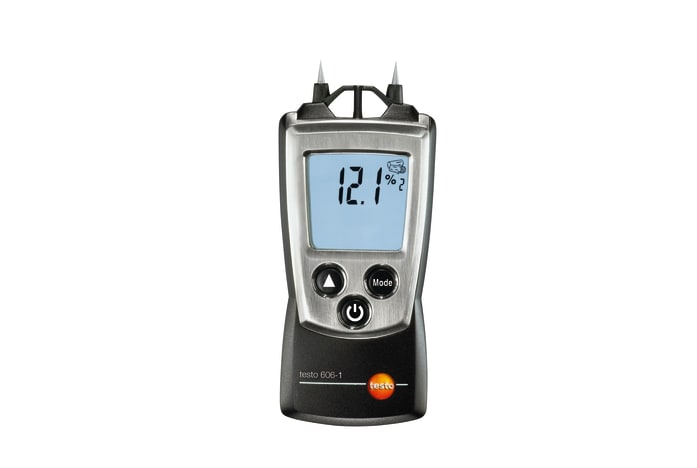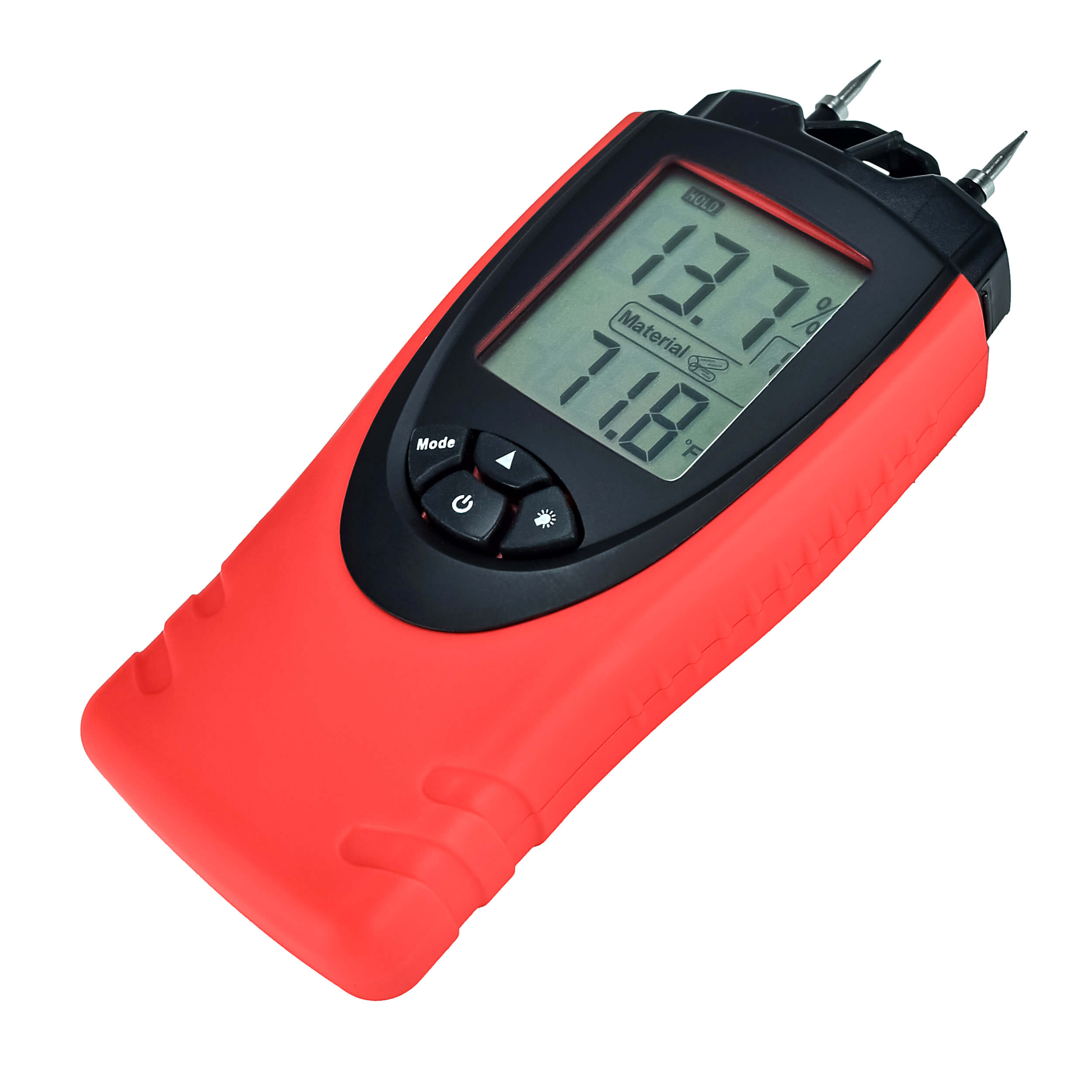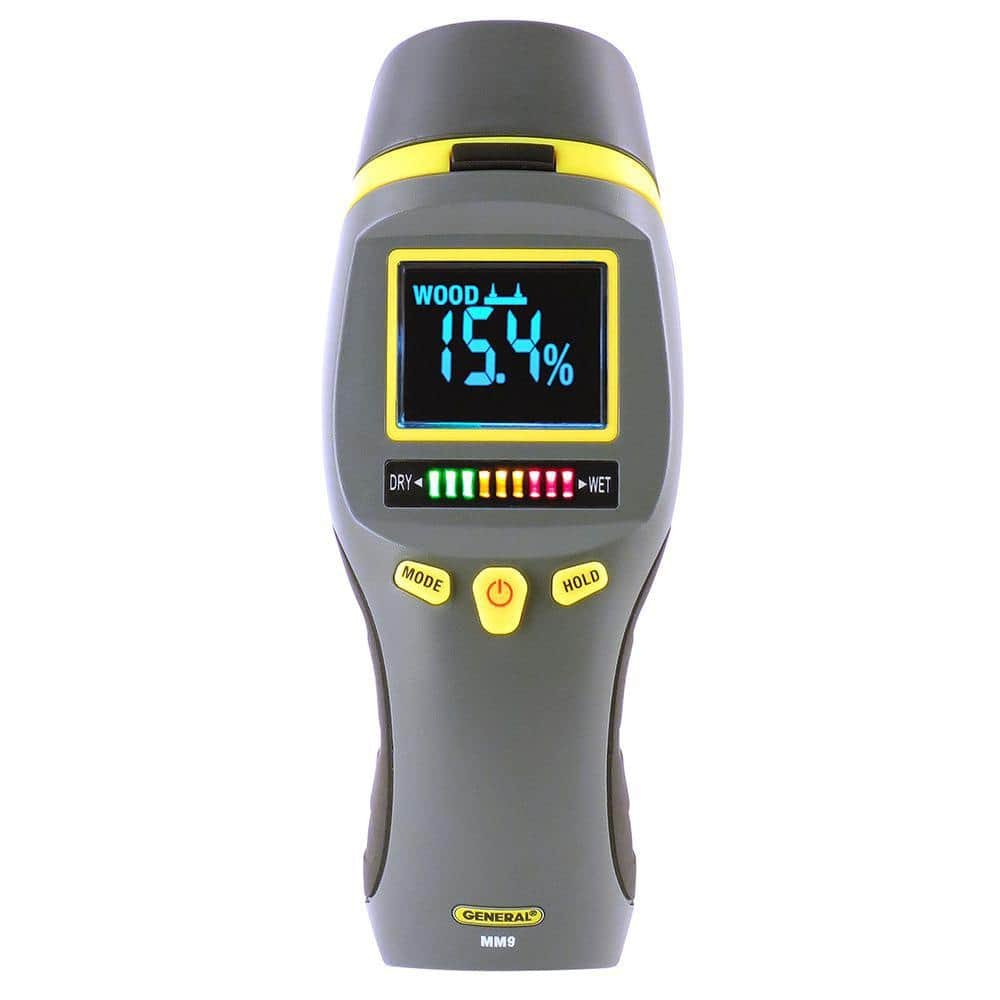Moisture Meter Purchasing Overview: What to Search for in High-Quality Instruments
Moisture Meter Purchasing Overview: What to Search for in High-Quality Instruments
Blog Article
The Ultimate Overview to Moisture Meters: A Comprehensive Overview and How They Can Save You Cash
In the world of building maintenance, building, and different sectors, the value of precisely gauging dampness degrees can not be overemphasized. Moisture meters work as important tools in spotting and checking moisture web content in materials, aiding in avoiding expensive problems and making sure the top quality of items. Recognizing the subtleties of various sorts of wetness meters, their applications, and the potential cost-saving advantages they supply can be a game-changer for companies and professionals alike. Finding how these tools can not just streamline procedures however additionally add to monetary cost savings is a trip worth starting.
Types of Moisture Meters
Different kinds of wetness meters are offered for different applications in different sectors. One typical type is the pin-type dampness meter, which gauges the electrical resistance between 2 pins placed right into a material. This type appropriates for wood, drywall, and various other structure products. Pinless wetness meters, on the various other hand, usage electro-magnetic sensor plates to scan a bigger location without creating damage to the product's surface. These meters are suitable for quickly analyzing moisture levels in huge areas such as wall surfaces and floors.
Infrared wetness meters measure the thermal properties of a product to establish its wetness web content non-invasively, making them valuable for applications where pin or pinless meters may not be appropriate. Comprehending the different kinds of dampness meters offered can help sectors select the most ideal device for their particular moisture dimension needs.

Advantages of Making Use Of Moisture Meters

In addition, using wetness meters can cause raised energy effectiveness. By recognizing areas with high dampness levels, such as leakages or bad insulation, modifications can be made to boost energy conservation and reduce utility costs. In farming setups, moisture meters play a crucial role in maximizing crop yields by enabling farmers to check soil dampness degrees and make educated irrigation decisions. Generally, the advantages of making use of wetness meters span throughout various markets, giving cost-efficient solutions and promoting better quality assurance methods.
Just How to Pick the Right Moisture Meter
Choosing the proper wetness meter entails thinking about key variables such as product compatibility, dimension range, and calibration accuracy. When selecting a wetness meter, it's necessary to ensure that the meter appropriates for the specific material you will be testing. Various products have varying electrical residential properties that can impact moisture analyses, so choosing a meter made for your material is critical for exact outcomes. Furthermore, think about the dimension series of the moisture meter. Ensure that the meter can identify moisture degrees within the variety required for your applications. Calibration accuracy is another critical element to remember (Moisture Meter). Select a moisture meter with dependable calibration to make certain accurate and constant readings. Some meters might call for regular calibration modifications, so recognizing the calibration process is very important. By carefully evaluating these aspects, you can pick a moisture meter that fulfills your needs and offers exact dampness dimensions for your jobs.
Appropriate Methods for Moisture Meter Use
To make go to these guys certain precise dampness readings and maximize the efficiency of a moisture meter, utilizing appropriate methods is crucial. When utilizing a pin-type dampness meter, place the pins or probes right into the material being evaluated until they make full contact. Make certain the pins are vertical to the surface to get one of the most accurate analysis. For pinless moisture meters, hold the tool flat versus the material and relocate gradually to cover the whole area for an ordinary reading. It's essential to calibrate the wetness meter according to the material being checked to improve accuracy. Take numerous analyses across the surface area and typical them out for a much more trusted outcome. Furthermore, ensure that the product being checked is accustomed to the environment to protect against manipulated readings. Routine maintenance of the moisture meter, such as cleansing the pins or sensing unit, is additionally crucial to make certain precise and regular readings. By adhering to these correct techniques, customers can rely upon their wetness meter to supply credible dampness levels, assisting in protecting against costly damage or making sure quality in different applications.

Expense Cost Savings Through Moisture Meter Applications
Exactly how can the calculated usage of moisture meters lead to significant cost savings throughout different industries? In the farming industry, dampness meters help in establishing the optimal time for collecting plants, stopping excess or over-drying dampness that can impact the last product's high quality.

Additionally, in the food handling industry, dampness meters are important for keeping track of product quality and making sure conformity with security guidelines. By accurately determining wetness content in foodstuff, makers can protect against perishing, maintain quality, and lower waste, leading to considerable cost financial savings. Generally, the tactical application of wetness meters is a useful investment that can cause significant cost reductions and boosted check my source effectiveness throughout numerous markets.
Conclusion
In verdict, wetness meters are valuable devices for identifying and gauging wetness levels in different materials. By using the right moisture meter and following appropriate techniques, customers can effectively stop costly damages caused by excess wetness.
Moisture meters serve as essential tools in detecting and keeping an eye on moisture material in materials, assisting in avoiding expensive problems and guaranteeing the high quality of products. Infrared moisture meters determine the thermal buildings of a material to identify its wetness material non-invasively, making them valuable for applications where pin or pinless meters may not be appropriate.Wetness meters use indispensable benefits in properly examining and keeping an eye on dampness degrees in varied materials and settings. In farming settings, dampness meters play a vital function in maximizing crop yields by making it possible for farmers to keep an eye on official site dirt wetness degrees and make informed irrigation choices.In final thought, moisture meters are beneficial devices for determining and identifying wetness levels in different products.
Report this page